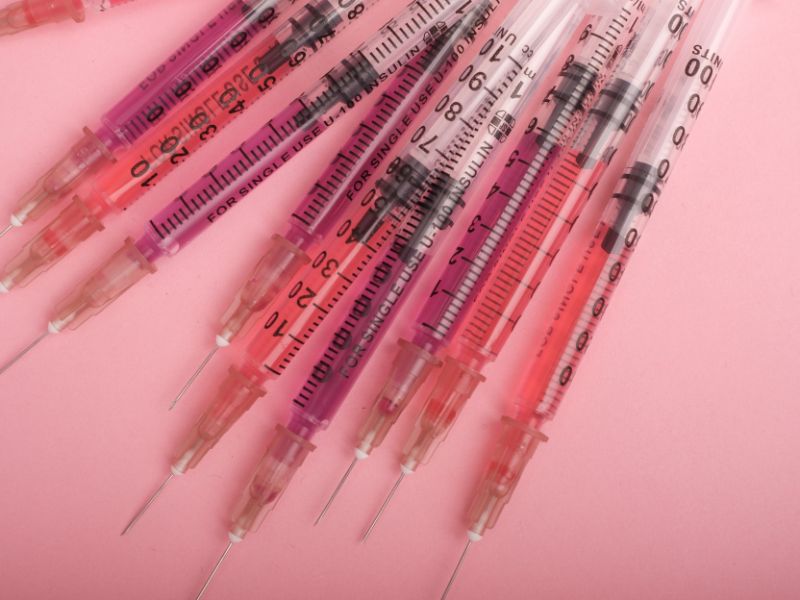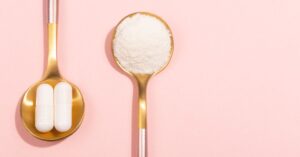You may have heard the word “SIBO” recently, but you might not be sure what it is. At Tringali Vibrant Health, SIBO is something we see a lot of in our patients. Symptoms like diarrhea, constipation, bloating after eating, and even anxiety and depression are all signs that you might have SIBO.
Let’s dive into what this common gut condition is.
What is SIBO?
We should all know by now that our gut (which is made up of our small and large intestines) includes a living environment of organisms. This “microbiome” is composed of trillions of bacteria, fungi, and other microbes that affect our immune system, heart, weight, and many other aspects of our overall health. Most of these microbes live in the large intestine, but sometimes these bacteria can move into the small intestine, contributing to several health issues.
Symptoms of SIBO:
- Constipation
- Diarrhea
- Cramping
- Gas
- Nausea
- Bloating
- Acid Reflux, heartburn, GERD
- Anxiety/Depression
SIBO stands for Small Intestinal Bacterial Overgrowth, which is quite literally an overgrowth of bacteria in the small intestine. When there are bacteria in the small intestine that shouldn’t be there, they can start feeding on certain foods that we eat, producing a lot of gas and other symptoms in the body. SIBO is not a diagnosis of disease but rather it is a consequence of something else happening within your body. Thus, finding the root cause of the overgrowth is essential.
What Causes Bacterial Overgrowth in the Small Intestine?
Finding the root cause of illness is the basis of Functional Medicine. When it comes to bacterial overgrowth in the small intestine, there are many triggers to investigate. Let’s discuss a few important ones below.
- Overuse of antibiotics
- Overuse of PPIs (proton pump inhibitors or antacids)
- Migrating Motor Complex Dysfunction (motility issues within the digestive system)
- Altered bile flow and enzyme production
- Stress
Overuse of Antibiotics
Even though antibiotics can be used to treat SIBO, the systematic use of them can be problematic to your microbiome. Antibiotics can kill off both harmful and helpful bacteria, upsetting the balance of the microbiome. Chronic exposure to antibiotics can even lead to drug-resistant bacteria, making SIBO and other infections more difficult to treat.
Overuse of PPIs or Antacids
The overuse of PPIs or antacids is one of the most common causes of SIBO. The main reason that PPIs or antacids contribute to bacterial overgrowth is that they cause low stomach acid. Low stomach acid directly interferes with the initial stages of digestion. Stomach acid breaks down the food that we eat. If it isn’t broken down sufficiently, large undigested bits of foods (mostly carbohydrates) move into the small intestine. Bacteria feed off of these foods and allow them to proliferate.
Bacteria then produce hydrogen gas as a by-product. This gas then increases pressure in the abdomen, pushing acid from the stomach into the esophagus. Commonly, doctors will prescribe antacids to reduce these symptoms, but since the initial issue was a lack of acid, these medications can actually worsen symptoms and increase the likelihood of developing SIBO.
Migrating Motor Complex Dysfunction (motility issues within the digestive system)
When we are not eating or at rest, our digestive system is breaking down food that we’ve eaten and moving bacteria from the small intestine into the large intestine. This process is called the migrating motor complex (MMC), and it is one of our body’s most important mechanisms for proper digestion (2). If MMC function is impaired, bacteria are not cleared from the small intestine correctly, increasing the likelihood of developing SIBO (Gut Motility).
A variety of conditions may increase the risk of impaired MMC function:
- hypothyroidism
- certain medications such as opioids and proton pump inhibitors
- inflammatory bowel diseases such as Crohns and Colitis
- Diabetes
- Celiac disease
- gastroenteritis, C difficile and other infections
- Lyme disease
- Ehler’s Danlos
- history of eating disorders
Altered Bile Flow and Enzyme Production
Two substances that are required for proper digestion are bile and enzymes. Withouth biles and enzymes, carbohydrates may not be broken down sufficiently, providing fuel for bacteria to proliferate. Bile and enzymes also have anti-bacterial effects, helping to protect against bacterial overgrowth and decreasing the risk of developing SIBO.
Stress
Stress is one of those all-encompassing triggers that affects our body so deeply that Tringali Vibrant Health is devoting a whole month of ways to combat it in October (stay tuned!). Just like antacids, stress can iterfere with digestion by reducing stomach acid, which then leads to reduced bile secretion and enzyme production, and ultimately contributes to SIBO.
Stress also weakens the immune system, allowing for the overgrowth of bad bacteria or fungi (like candida) or an infection that may require antibiotics, further increasing the risk of developing SIBO. Stress being both a cause and symptom of SIBO shows how intimately the gut and brain are connected.
Stress is a slippery slope into disease that doesn’t get its fair share of attention. Again, stay tuned for next month!
Other Causes of SIBO
There are of course other causes of SIBO. Food poisoning, environmental factors, and of course food intolerences and sensitivities (which SIBO can also cause!). Food sensitivities (like gluten) can start the process of inflammation and then creates dysbiosis and the opportunity for an overgrowth of bacteria.
The short of it is that SIBO is more common than you think, and something that should be tested for if you experience any of the associated symptoms.
Testing For SIBO
SIBO can be diagnosed through a brath or stool test (try our self-test!). This test measures the presence and amount of both hydrogen and methane gas produced by the bacteria in the small intestine.
There are actually different types of SIBO. You may have noticed that diarrhea is a symptom, but constipation is as well. In fact, you can experience alternating diarrhea and constipation with SIBO. If the breath test shows more hydrogen, the patient is probably experiencing diarrhea. More methane gas usually results in constipation.
How to Treat SIBO
There are a number of ways to treat SIBO, but they all depend on one incredibly important first step: finding the root cause. Taking the Functional Medicine route to identify the root cause of your symptoms is the only way to stop the cycles outlined above.
- Identify the Root Cause: A comprehensive health history and functional lab testing by a functional Medicine Practictioner is the best way to identify if you have SIBO and what type of SIBO you might have. This type of testing informs the treatment protocol that will best treat each individual patient.
- Antibiotics/Herbal Treatments: Even though the overuse of antibiotics can lead to SIBO, antibiotics are sometimes needed to treat a bacterial overgrowth. However, antibiotics are not the only course of action against SIBO. Herbal treatments like oregano oil and berberine have been shown to be incredibly effective at removing bacterial overgrowth.
- Avoid FODMAP Foods: FODMAP stands for fermentable oligosaccharides, disaccharides, monosaccharides and polyols, which are short-chain carbohydrates (sugars) that the small intestine absorbs poorly. In layman\’s terms, these are foods that ferment easily in the gut and feed the bacteria in the small intestine.
- Take a Probiotic: Ok, this is a treatment for SIBO that comes with a HUGE caveat. In fact, most people with SIBO have severe bloating with certain probiotics. This is because some probiotics can actually FEED those very hungry bacteria in your small intestine. The best probiotic for SIBO is a spore-based probiotic. Spore-based probiotics are encapsulated with a special layer that moves through the stomach and small intestine and into the large intestine (where they need to go!) without breaking down. See the diagram below.
- Know Your Micronutrient Levels and Supplement Accordingly: There are many micronutrient deficiencies associated with SIBO. This is mainly due to the body not absorbing the necessary nutrients from foods:Some common SIBO-induced deficiencies are:
Vibrant Spore is a spore-based, broad-spectrum probiotic formula designed to promote a healthy gut microflora, protect mucosal integrity, and relieve small intestinal bacterial overgrowth (SIBO). Uniquely included in this formula are serum-derived bovine immunoglobulins that bind to and eliminate microbes and toxins that are common in SIBO.
In Conclusion:
In the end, if you are experiencing any of the associated symptoms of SIBO, the most important thing you can do is to identify the root cause. From there, you can begin healing.
In fact, this is the little known secret to almost every symptom or condition: find the root cause. Contact a Functional Medicine Practitioner and find the root cause. From there, you can stop putting bandaids on your symptoms (like antacids) that sometimes can make your condition worse or continue a never-ending cycle of poor health.
If you have any questions, comments, or concerns please feel free to email me at info@tringali-health.com or call us at 561-283-1166.Elizabeth Tringali, PA-C
*These statements have not been evaluated by the Food and Drug Administration. These products are not intended to diagnose, treat, cure, or prevent any disease.









